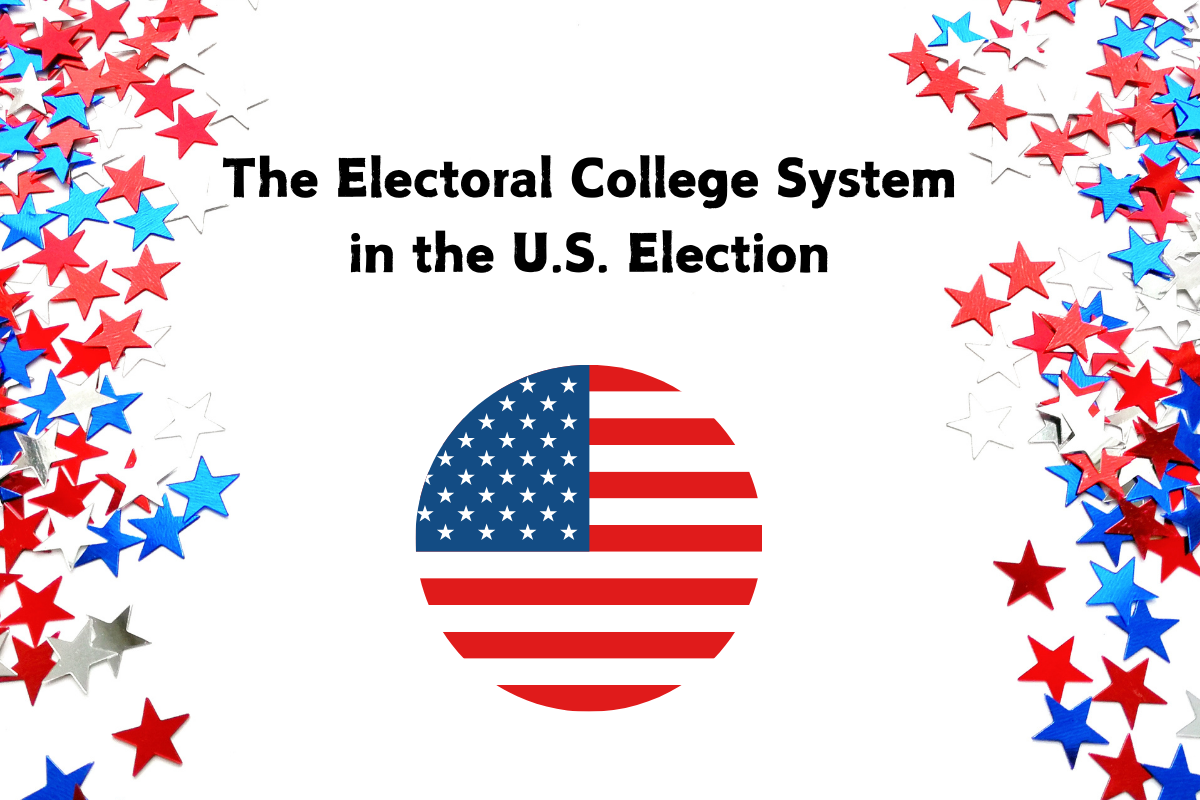The Electoral College System in the U.S. Election
The Electoral College is a unique feature of the U.S. presidential election process. It was designed by the founders of the United States to balance representation between states of different sizes and protect against potential influences in a purely popular vote system. Here’s how the system works:

Electoral Votes 选举人票 (xuǎnjǔ rén piào)
Each state has a set number of electoral votes based on its population size. The number of electoral votes is equal to the total number of Senators参议员(cānyìyuán) and Representatives众议员(zhòngyìyuán) a state has in Congress. Currently, there are 538 electoral votes in total, and a candidate needs 270 votes选票(xuǎnpiào) to win the presidency.
Winner-Takes-All System 赢者通吃制度 (yíngzhě tōngchī zhìdù)
In most states, the Electoral College follows a winner-takes-all赢者通吃(yíngzhě tōngchī) rule. This means that whichever candidate wins the popular vote in a state receives all of that state’s electoral votes. Only Maine and Nebraska use a proportional allocation system比例分配(bǐlì fēnpèi), which allows their electoral votes to be split based on the voting results in different districts.
The Role of Electors 选举人角色 (xuǎnjǔ rén juésè)
The Electoral College consists of electors选举人(xuǎnjǔ rén) chosen by each political party. After the general election in November, the electors meet in December to formally cast their votes for president. Although rare, some electors have chosen to vote against their pledged candidate; these are known as faithless electors不忠实选举人(bù zhōngshí xuǎnjǔ rén). However, many states have laws requiring electors to vote in accordance with the popular vote in their state.
Congressional Certification 国会认证 (guóhuì rènzhèng)
After the electors cast their votes, the results are sent to Congress国会(guóhuì), which meets in early January to formally count the votes and certify the winner. This final step confirms the president-elect当选总统(dāngxuǎn zǒngtǒng) and solidifies the outcome of the election.
Why the Electoral College Matters 为什么选举人制度很重要
The Electoral College system ensures that smaller states have representation in the election and that candidates cannot rely only on winning the most populated areas to gain the presidency. However, it has faced criticism because a candidate can win the presidency without winning the national popular vote普选票(pǔxuǎn piào).Through the Electoral College, the U.S. election system emphasizes both state representation州代表权(zhōu dàibiǎo quán) and popular participation民众参与(mínzhòng cānyù), creating a balance that remains central to the U.S. democratic structure.